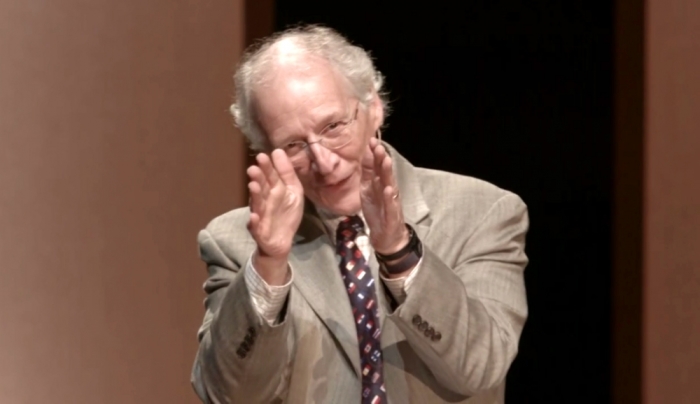John Piper: Does Modern Medicine Contradict God's Will?

When contemplating if modern medicine impedes God's will for us, we as Christians must ask ourselves if we are seeking the Lord through these remedies, Pastor John Piper says.
Piper, founder and teacher at DesiringGod.org, wrote in a recent blog post for his website that regardless of what we do in life, we must always be sure that God's will is being done.
Therefore, it is not necessarily a question of whether modern medicine, such as chemotherapy, impedes God's plan for us if he has ordained our sickness and suffering. Rather, the question is whether we are keeping God's will in mind when we choose to pursue such medical options.
We as Christians cannot be too quick to resort to modern medicine before prayer, Piper writes, but this does not mean that modern medicine in general is considered wrong in the eyes of God.
"It may be wrong, especially if it betrays that you have no interest in seeking God's help whatsoever. And you are not going to rely on him at all. And you don't love him and trust him at all. Well, then, whatever you do is going to be wrong," Piper explains.
The key question we must ask ourselves when dealing with sickness, suffering and a potential cure is: "Are we seeking the Lord?"
"Are we depending on the Lord, trusting the Lord, praying to the Lord, loving the Lord in all of this?" Piper questions.
"For there is no doubt. His sovereign will, will in fact, be done. It will be done through prayer and through miracles and through medical intervention. And what God is looking for is not the least intrusive strategy of dealing with disease. He is looking for the deepest, most joyful submission to his sovereign will, however we deal with our suffering," the theologian, who serves as chancellor of Bethlehem College & Seminary, says.
Piper points to several Bible passages that reference the use of medicine and how it relates to God's will, including 2 Chronicles 16:12, in which Asa looks to physicians instead of God for help for his sickness.
"In the thirty-ninth year of his reign Asa was diseased in his feet, and his disease became severe. Yet even in his disease he did not seek the LORD, but sought help from physicians," the verses read.
Piper explains that in this instance, Asa was wrong for being "indifferent to his relation to God and so saturated with a this-worldly mindset and all of the resources of the world that it didn't even seem important to him at all to seek God's help, and he went straight to doctors without consulting God at all."
But there are other instances in the Bible when seeking medicine is fine because God's will has also been sought, as in Genesis 1:28, when God tells Adam and Eve to "'Be fruitful and multiply and fill the earth and subdue it, and have dominion over the fish of the sea and over the birds of the heavens and over every living thing that moves.'"
Piper explains that there are many ways we as humans can subdue the earth so it "[serves] our maximal usefulness and fruitfulness to his glory," and one of these ways is through modern medicine.
In the end, we as Christians must always ask ourselves if God's will is being done, Piper concludes, encouraging Christians to ask themselves if they're "praying, trusting, loving, seeking to submit ourselves deeply to his sovereign will?"
Piper previously spoke on the topic of donating your body to science in a blog post, explaining that there can be something dignified about giving your body for the greater good, just as Jesus gave his physical body on the cross for our sins.
"Surely the human body that Christ took on was not designed to be tortured and whipped and lacerated and speared and nailed to a cross like a piece of meat," Piper wrote in the blog post. "But all of those indignities were embraced by Christ. He chose them. He submitted himself to them. He gave himself to them not only that our souls might be saved, but precisely so that our bodies would be raised from the dead — and all the indignities of disease and death and torture would be overcome precisely because he gave his body to them."




























